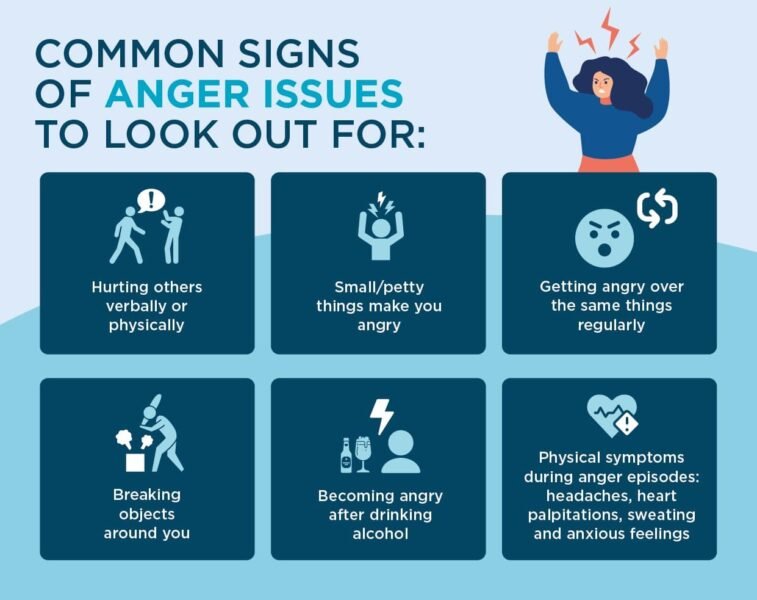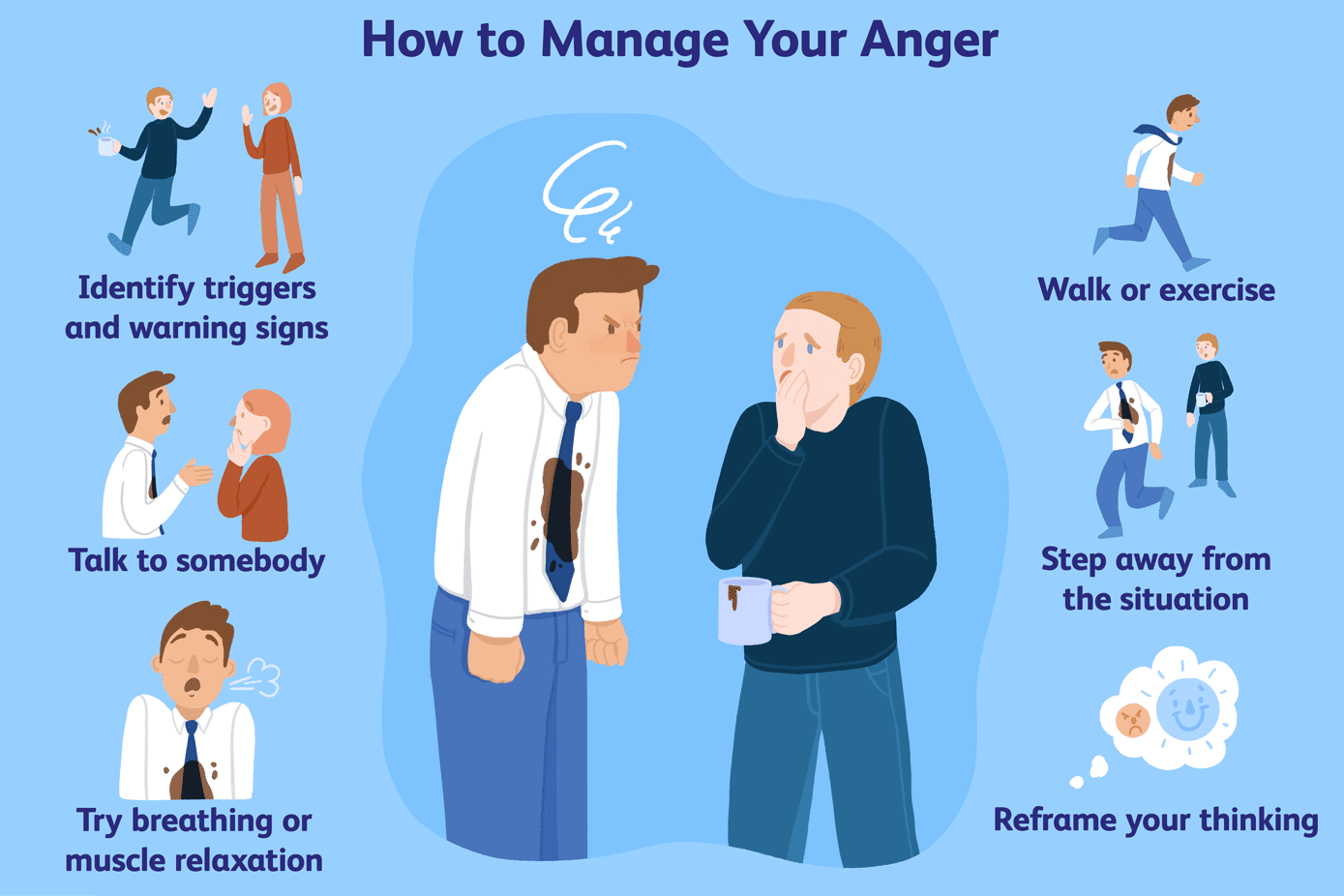15 Anger Management Tips | Mastering Your Emotions: 15 Essential Anger Management Tips
Discover 15 practical anger management strategies to help you gain control over your emotions and lead a more peaceful life. These essential tips will empower you to navigate challenging situations with composure and resilience. Anger is a normal emotion, but it’s important to learn how to manage it in a healthy way. By following these tips, you can learn to control your anger and improve your relationships with others.

Here are some anger management tips that may help:
1. Recognize the signs of anger:
The first step to managing anger is to recognize its signs of it. These may include physical sensations such as increased heart rate, the tension in the muscles, and a feeling of warmth or pressure in the head or chest.

Recognize your anger. The first step to controlling your anger is to be aware of when you’re feeling angry. Pay attention to your body’s physical cues, such as increased heart rate, sweating, or muscle tension. You may also notice changes in your thoughts and behavior, such as becoming more irritable, impulsive, or aggressive.
Identify the source of your anger:
Understanding the source of your anger can help you manage it more effectively. Ask yourself what is really bothering you and why you are feeling angry.
Identify your triggers. Once you’re aware of your anger, take some time to identify the things that trigger your anger. Once you know your triggers, you can start to develop strategies for dealing with them in a healthy way.
2. Take a break:
If you feel yourself becoming angry, take a break from the situation. Remove yourself from the situation and take a few deep breaths. This can help you calm down and gain a clearer perspective on the situation.
Take a time out. If you start to feel angry, take a few minutes to cool down before you say or do anything you’ll regret. Remove yourself from the situation if possible, or go to a quiet place where you can relax.
3. Use relaxation techniques:
Relaxation techniques such as deep breathing, progressive muscle relaxation, and meditation can help you manage your anger. These techniques can help you stay calm and centered, even in stressful situations.
Use relaxation techniques. There are many different relaxation techniques that can help you calm down when you’re angry. Some common techniques include deep breathing, meditation, and progressive muscle relaxation.

4. Practice assertiveness:
Learning to be assertive can help you express your feelings in a constructive way. This involves communicating your needs and concerns in a respectful and non-threatening manner.
5. Use humour:
Humour can be a powerful tool in defusing anger. Try to find the humor in the situation and use it to diffuse the tension.
6. Seek support:
If you are struggling with anger management, seek support from a therapist or counselor. They can help you develop coping strategies and work through underlying issues that may be contributing to your anger.
7. Seek professional help.
If you’re struggling to manage your anger on your own, consider seeking professional help. A therapist can teach you the skills you need to control your anger and improve your overall mental health.
8. Express your anger in a healthy way.
It’s important to find healthy ways to express your anger. This could involve talking to someone you trust, writing in a journal, or exercising. Avoid expressing your anger in unhealthy ways, such as yelling, hitting, or destroying property.
9. Talk to someone you trust.
Sometimes, talking about what’s making you angry can help you to calm down and gain a new perspective. Talk to a friend, family member, therapist, or anyone else you feel comfortable talking to.
10. Change your thinking.
The way we think about things can have a big impact on our emotions. If you find yourself getting angry over things that are out of your control, try to change your thinking. Remind yourself that anger won’t solve anything, and that it’s better to focus on finding solutions.
11. Get enough sleep.
When you’re tired, you’re more likely to get angry.
12. Eat a healthy diet.
Eating unhealthy foods can contribute to mood swings and irritability.
13. Exercise regularly.
Exercise is a great way to relieve stress and improve your mood.
14. Avoid alcohol and drugs.
Alcohol and drugs can worsen anger problems.
15. Set realistic expectations.
Don’t expect things to always go your way. When things don’t go as planned, try to stay calm and focus on finding a solution.
16. Be patient.
It takes time and practice to learn how to manage your anger. Don’t get discouraged if you don’t see results immediately. Just keep practicing and you will eventually get better at it.
If you are struggling to manage your anger, please reach out for help. There are many resources available to help you, including therapists, anger management classes, and support groups.
https://www.mayoclinic.org/healthy-lifestyle/adult-health/in-depth/anger-management/art-20045434
The Power of Meditation: Cultivating Mindfulness and Inner Peace, When is the best time to meditate?
https://doctorflo.com/2021/02/07/how-to-control-anger-so-it-does-not-control-you/




